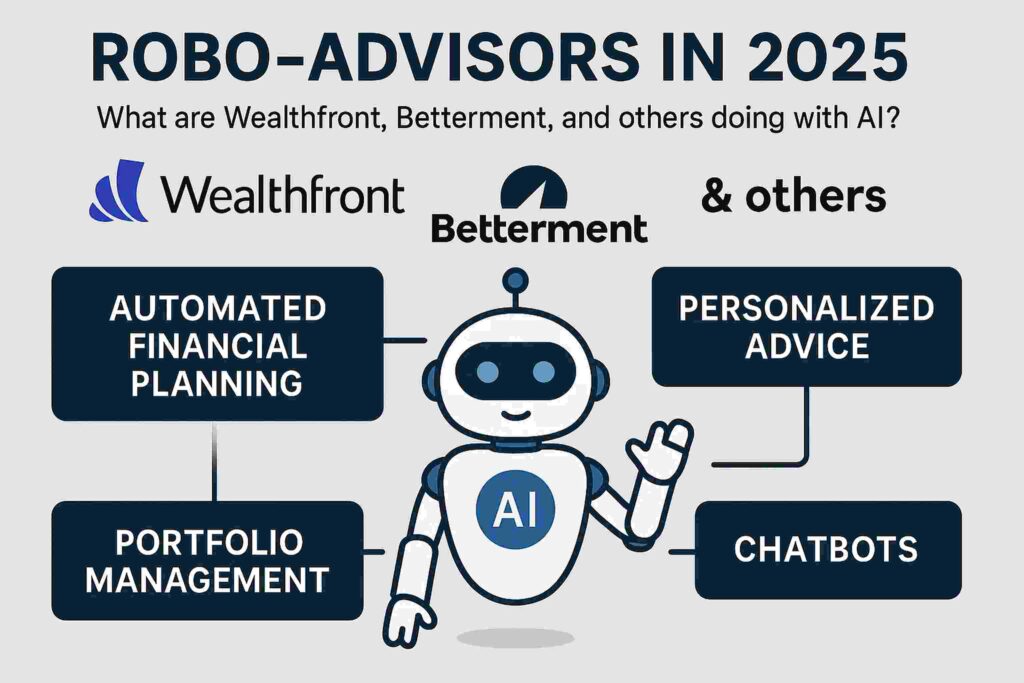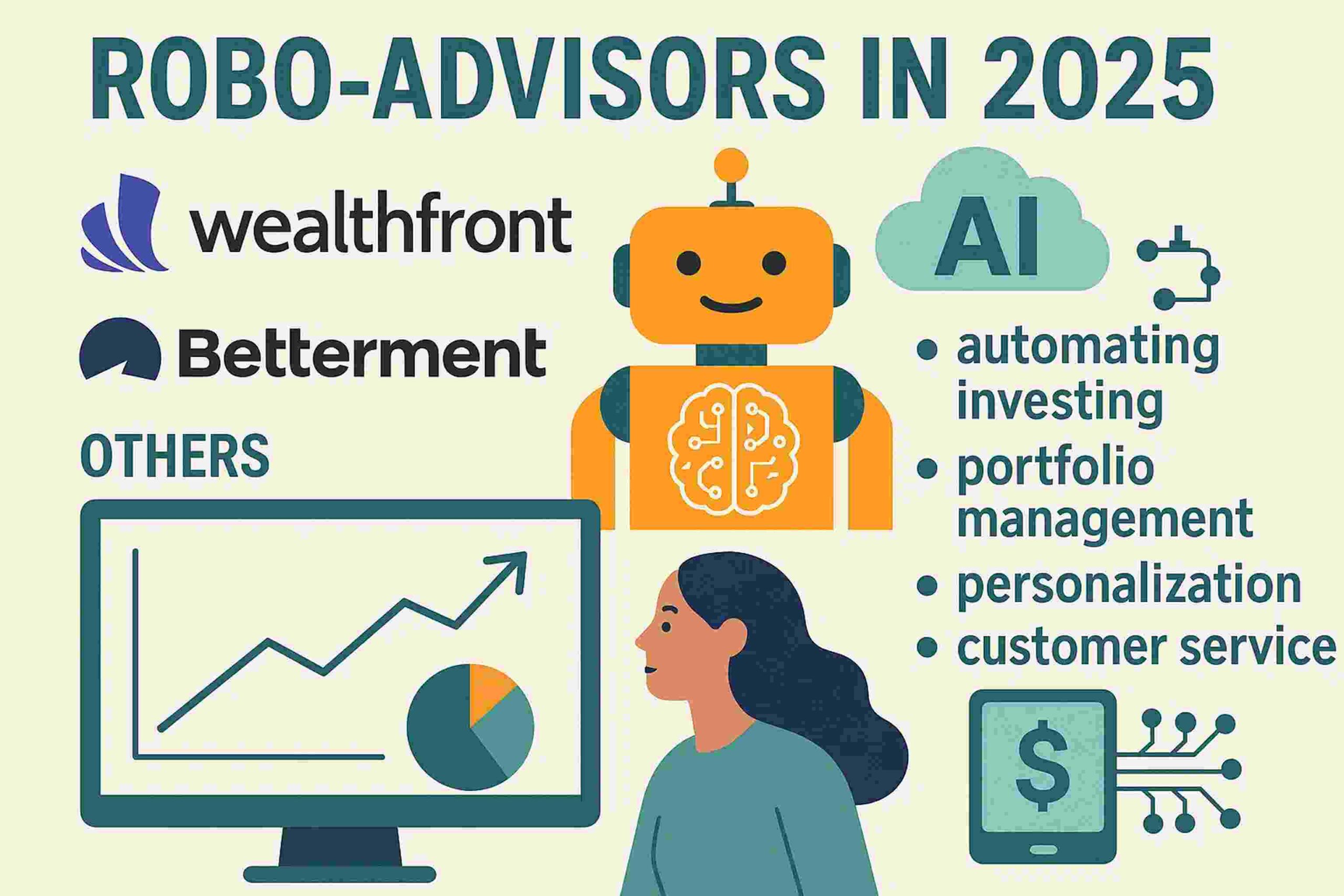Robo-advisors in 2025: How Wealthfront, Betterment and others are using AI
The landscape of digital wealth management has transformed dramatically in the past decade, and in 2025, robo-advisors are at the center of this evolution. For individuals navigating the complex world of investments, automated platforms are not only offering personalized investment strategies but also integrating artificial intelligence in ways that make portfolio management more efficient, adaptive, and human-like. What was once a simple algorithm-driven service has become an advanced, AI-augmented financial partner.
This year marks a new chapter in how major players such as Wealthfront, Betterment, and several emerging competitors are leveraging machine learning, predictive analytics, and generative models to provide clients with deeper insights, better risk management, and smarter financial planning. These platforms are competing not only on performance but also on the quality of the user experience, transparency, and integration with broader financial ecosystems.
Wealthfront and the power of predictive AI

Wealthfront, long recognized for its focus on automation and tax-loss harvesting, has doubled down on artificial intelligence to refine its predictive capabilities. In 2025, the platform uses machine learning models that continuously analyze market shifts, user behavior, and even macroeconomic indicators to optimize asset allocation. Another striking development is Wealthfront’s ability to model future scenarios with greater accuracy. By using AI-driven simulations, clients can view potential long-term outcomes of various investment strategies, incorporating elements like inflation rates, policy changes, or sudden downturns.
Betterment’s focus on personalization and behavioral finance
While Wealthfront has leaned into predictive analysis, Betterment’s 2025 strategy emphasizes personalization and behavioral guidance. Betterment has integrated AI tools that analyze spending habits, savings behavior, and even emotional responses to market movements, offering nudges that keep users aligned with their goals. A notable feature introduced this year is AI-powered “life-event planning.” Betterment’s system anticipates major milestones such as marriage, homeownership, or retirement transitions and dynamically adjusts financial strategies accordingly.
Competition from emerging players and big tech
The dominance of Wealthfront and Betterment is being challenged by a new wave of entrants, including fintech startups and major technology companies. In 2025, the likes of Robinhood and other digital-first platforms are integrating robo-advisory services with their existing trading ecosystems, creating seamless experiences for users who want both self-directed and automated investing. Big tech firms have also joined the race, offering AI-driven financial management tools that plug directly into their broader ecosystems of apps and services. These players bring massive datasets, advanced AI capabilities, and established user bases, which intensifies competition.
Transparency, trust, and ethical AI in robo-advisory
One of the central debates in 2025 concerns transparency and ethics in robo-advisory platforms. As algorithms become more complex and autonomous, users demand greater clarity about how decisions are made and what incentives drive them. Companies are responding by publishing explainability reports, disclosing model biases, and offering audit trails that show why specific recommendations were made. Trust is now a competitive differentiator. Wealthfront and Betterment have emphasized that their AI systems are aligned with fiduciary principles, ensuring clients’ best interests remain at the forefront. Emerging players, however, face scrutiny regarding conflicts of interest, particularly when monetization strategies involve directing clients toward proprietary financial products.
The future of robo-advisors with AI integration
Looking ahead, the role of AI in robo-advisory is likely to expand beyond investment management. These platforms are evolving into holistic financial assistants capable of managing debt, optimizing taxes, and even advising on insurance and estate planning. In 2025, the trend is clear: robo-advisors are not merely tools for passive investing but comprehensive, AI-powered companions for personal finance. As adoption grows, the challenge for providers will be maintaining accessibility while offering increasingly sophisticated services. The democratization of advanced financial planning—once reserved for high-net-worth individuals—signals a profound shift in how society approaches wealth management.















